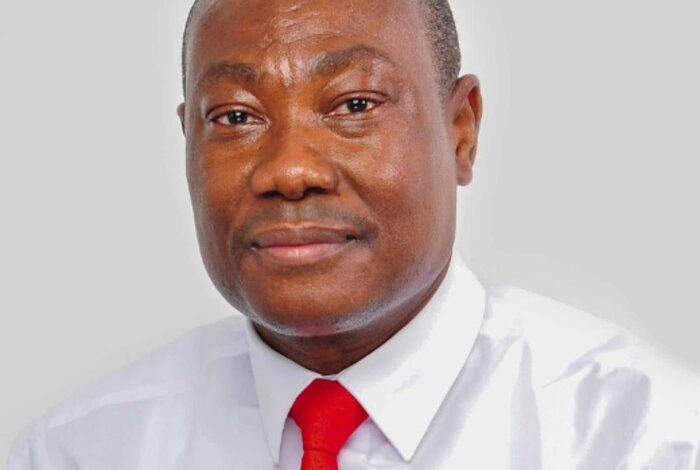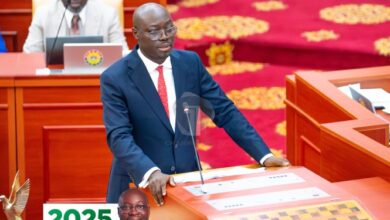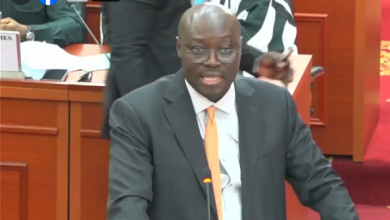Minerals Commission decentralizes operations to boost efficiency

The Minerals Commission of Ghana is making strides in decentralizing its operations to improve access to information and services.
For 40 years, the commission’s services were centralized, leading to inefficiencies.
However, under the leadership of Chief Executive Officer Mr. Martin Kwaku Ayisi, the commission has been building office complexes across the regions using internally generated funds for the past three years.
The commission aims to establish Regional and District offices. For the Regional Mining Offices, it is building offices in Kumasi, Tarkwa, Savanna (Bole), Tamale, Wa, and Bolga.
The district offices will be at Kyebi, Akim Oda, Damang, and Bibiani.
Offices at Bibiani and Oda were completed last year. At the same time, the Kyebi and Damang Offices are expected to be completed this year, and work is ongoing on Mineral Capitals in Kumasi, Tarkwa, Savanna, and Tamale.
The office at Bole in Savanna is expected to be completed in April 2025, whereas the New Office for Tarkwa will be ready next year.
The Kumasi Regional Office, which is almost complete, is an eight-story, ultra-modern, multi-purpose office complex.
According to Mr. Ayisi, decentralizing the commission’s operations is crucial for enhancing the regulation of the mining sector.
The commission’s efforts are part of the government’s initiative to decentralize its operations and improve service delivery.
Mr. Ayisi emphasized that decentralization would bring numerous benefits to the minerals industry.
“Decentralization will enable us to provide effective oversight and regulation of mining activities at the regional level,” he stated. “This will lead to improved compliance with mining regulations, reduced environmental degradation, and increased revenue generation for the government.”
The commission’s decentralization efforts are expected to bring numerous benefits, including improved access to information and services, enhanced regulation of the mining sector, and increased efficiency.
With offices located across the regions, stakeholders will have easier access to the commission’s services. This will reduce the need for stakeholders to travel to Accra for services, saving time and resources.
The commission’s decentralization efforts are a significant step towards improving the efficiency and effectiveness of Ghana’s mining sector.
Mr. Ayisi noted that the commission’s decentralization efforts are in line with the government’s vision to make the mining sector more transparent, accountable, and beneficial to all stakeholders.
The commission’s decentralization efforts are expected to have a positive impact on the mining sector, leading to increased investment, job creation, and economic growth.
As the commission continues to decentralize its operations, stakeholders can expect improved services, increased transparency, and more effective regulation of the mining sector.
Addressing Illegal Mining Activities (Galamsey)
The decentralization of the Mineral Commission’s operations is a timely intervention aimed at addressing the escalating menace of galamsey in Ghana’s mining areas.
For years, the lack of effective regulation and oversight has allowed illegal mining activities to thrive, resulting in devastating environmental degradation and loss of revenue for the state.
However, with the establishment of regional offices, the Mineral Commission will be better positioned to monitor and regulate mining activities, making it more difficult for galamsey operators to evade detection.
The presence of Mineral Commission officials in the regions will also enable them to engage more effectively with local communities and stakeholders, raising awareness about the dangers of galamsey and the importance of responsible mining practices.
Staff Capacity Building
Mr. Martin Kwaku Ayisi underscored the fact that Ghana has investors from some of the biggest mining giants or conglomerates in the world, including such companies as Newmont Mining Corporation, which is the biggest gold-producing company in the world, AngloGold Ashanti, Goldfields; and now the Chinese giant Zijin Mining Group
He further emphasized that the high level of sophistication and technology being deployed by Newmont at its Ahafo Mines for example, equally call for a very high level of quality mine inspectors to be able to identify potential health and safety hazards
So the least that should be expected is to have mine inspectors whose level of knowledge and technical skills should be at par, if not better than, the various engineers at the mines in Ghana.
The Chief Executive believed world-class training is therefore central to ensuring that our mines are safe and are operating responsibly
That can only happen with the mind of training being provided to the mine inspectors and other technical staff of the Minerals Commission
According to Mr. Martin Ayisi, building the professional and skills capacity of staff members is crucial to the success of the Minerals Commission.
“By investing in our staff, we can ensure that they have the skills and expertise needed to effectively regulate the mining sector and support the growth of a responsible and sustainable mining industry,” he continued
Mr Ayisi said efforts have also been stepped up to improve the technical skills, knowledge, and professional competencies of the various mine inspectors.
As a result, over 40 mine inspectors, including mining engineers, geotechnical engineers, metallurgists, mechanical engineers, mine surveyors, and mineral economists, have been sent to the USA, Australia, and Canada to upgrade their skills through training in world-class mines such as Nevada Gold Mines and Freeport McMoRan in the USA and Northern Star Resources and BHP in Australia, among others.
He is of the strong conviction that the exposure to working in mines will expose the mine inspectors to new mining software, emerging trends, and technology, especially in an industry where robotics, Artificial Intelligence, and machine learning are gaining extensive use in the mining sector.
Source: Ghana/otecfmghana.com/Francis Appiah



